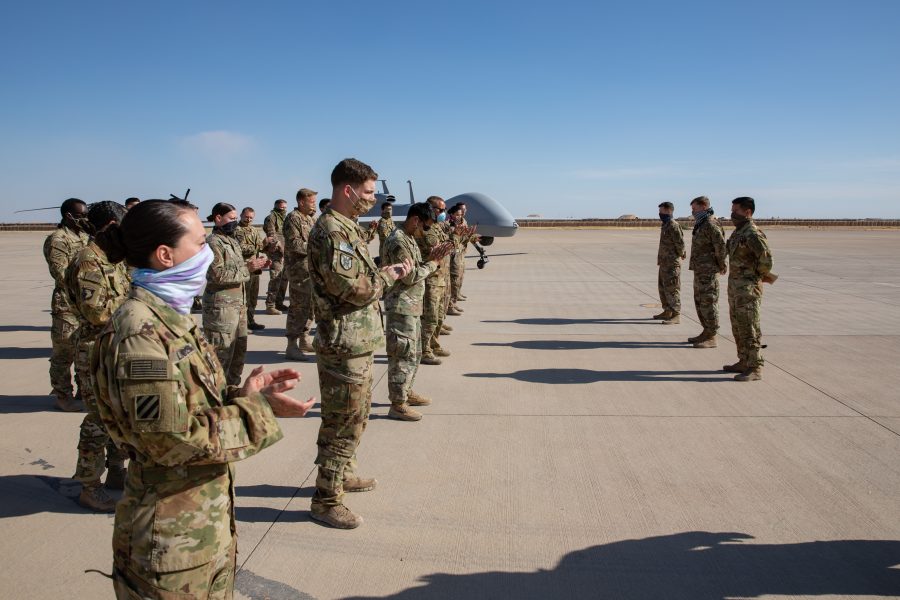Combined Joint Task Force-Operation Inherent Resolve approved 29 Purple Hearts for Soldiers who sustained traumatic brain injuries in the January Iranian ballistic missile attack on al-Asad Air Base, Iraq, but recommended against the two packages submitted for Airmen.
OIR Commander Lt. Gen. Pat White reviewed 80 award packages, including two for USAF. White recommended against awarding the medal in 51 of those cases. Air Forces Central Command boss Lt. Gen. Joseph Guastella Jr. was the final authority for the two USAF cases, according to U.S. Central Command.
Individual units were responsible for submitting award packages, and an OIR review board evaluated the awards against eligibility criteria in USAF and Army regulations.
“It is important to note that a traumatic brain injury diagnosis does not automatically qualify a service member for Purple Heart eligibility or awarding, and the CJTF-OIR process was designed to be a fair and impartial proceeding that evaluated each case in accordance with applicable regulations,” CENTCOM spokesman Cmdr. Zachary Harrell said in a statement.
In order to “clearly justify” a Purple Heart for traumatic brain injury, an Airmen must receive “moderate or penetrating” TBIs resulting in a loss of consciousness, according to Air Force Manual 36-2806. If the Airman did not lose consciousness, the award is justified if the injury resulted in a medical officer declaring the Airman “not fit for duty” for a period greater than 48 hours based on persistent symptoms, they have been referred to a neurologist or neuropsychologist for treatment, or they undergo rehabilitation.
The first two Purple Hearts were awarded May 3 and 4 in Iraq and Kuwait, with the rest expected to be presented this week.
Al-Asad had a major USAF presence, commanded by 443rd Air Expeditionary Squadron Commander Lt. Col. Staci Coleman. In a detailed recollection of the attacks released by AFCENT, Coleman said it was up to her to determine who stayed and who left before the attack.
“I was deciding who would live and who would die,” she said “I honestly thought anyone remaining behind would perish. I didn’t believe anyone would survive a ballistic missile attack, and it made me feel sick and helpless.”
Ultimately, no U.S. or Iraqi personnel were killed in the attack. More than 100 personnel suffered traumatic brain injuries. No breakdown of the number of injured, by service, has been released.
